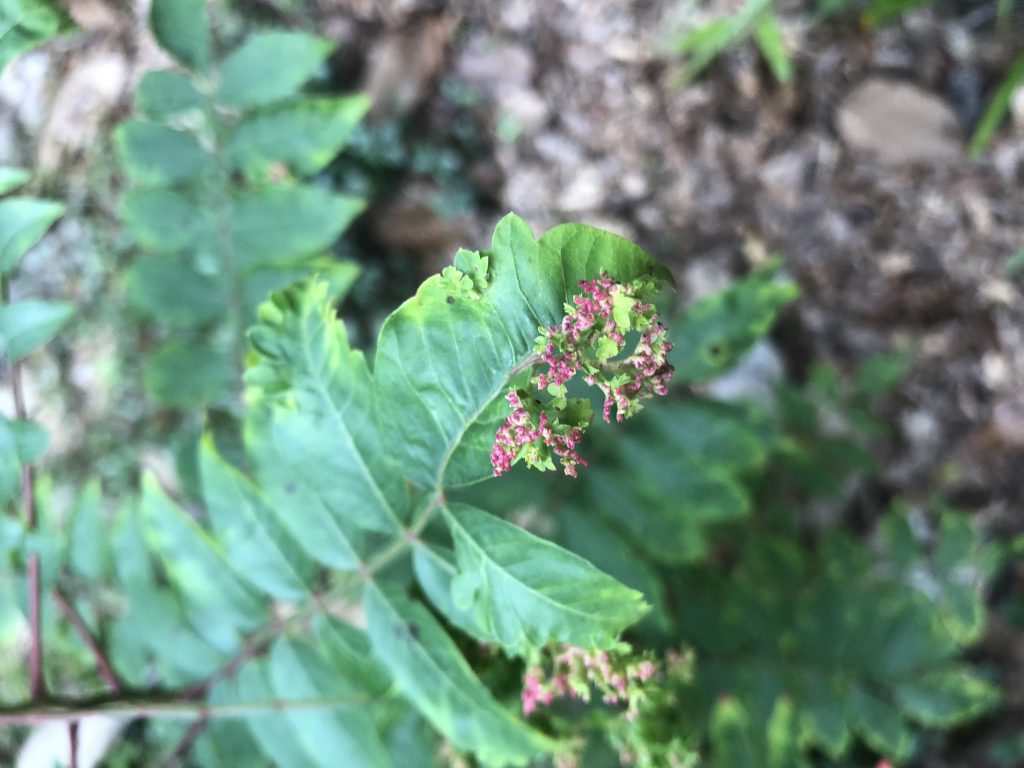One of my favorite native plants is winged sumac. I like this plant not only for its ornamental beauty, but also for its fruit that can be dried and used as seasoning and to make tea. So you can understand my concern when one of my prized winged sumac plants had distorted leaves.

Eriophyid mite damage on winged sumac. Photo Credit: Matt Lollar, University of Florida/IFAS Extension – Santa Rosa County
After doing a little research and speaking with one of our UF/IFAS Specialists, I was able to determine that the leaf distortion was caused by eriophyid mites. Mites are not insects and are more closely related to spiders. They normally have four pairs of legs, however eriophyid mites only have two pairs of legs. They are microscopic, elongate, spindle-shaped, and translucent.
Eriophyid mites cause galls (sometimes called witch’s broom) on various species of ornamental shrubs. Symptoms include early and late bud distortion, distorted leaves, and possibly plant death. In fact, the species Phyllocoptes fructiphilus is the vector for the viral disease of roses called Rose Rosette Disease. Sometimes the damage can be confused with herbicide damage.
Control options are currently being evaluated for eriophyid mites in the home landscape. Removing distorted plant material and removing it from the site can help prevent the spread of mites. If you suspect eriophyid mites are the cause of your distorted plants then samples should be collected. To collect samples: 1) Prune off symptomatic plant material and immediately place into a vial with rubbing alcohol; 2) label with collection date, plant species, and location; 3) mail to the Landscape Entomology Lab in Gainesville at P.O. Box 110620, Gainesville, FL 32611.
For more information on eriophyid mites and the sampling process, please see the fact sheet “Unusual Galls on Woody Ornamentals” from Erin Harlow and Dr. Adam Dale.
For more information on other mites that could be infesting your landscape, please go to this link from the Mid-Florida Research and Education Center in Apopka, FL.
- Is a Limequat a Lime or a Kumquat? - December 26, 2025
- Gardening in the Panhandle LIVE! Program Summary: Pests of Florida Lawns and Landscape Plants - May 28, 2025
- Fun Facts About Ferns - April 30, 2025

